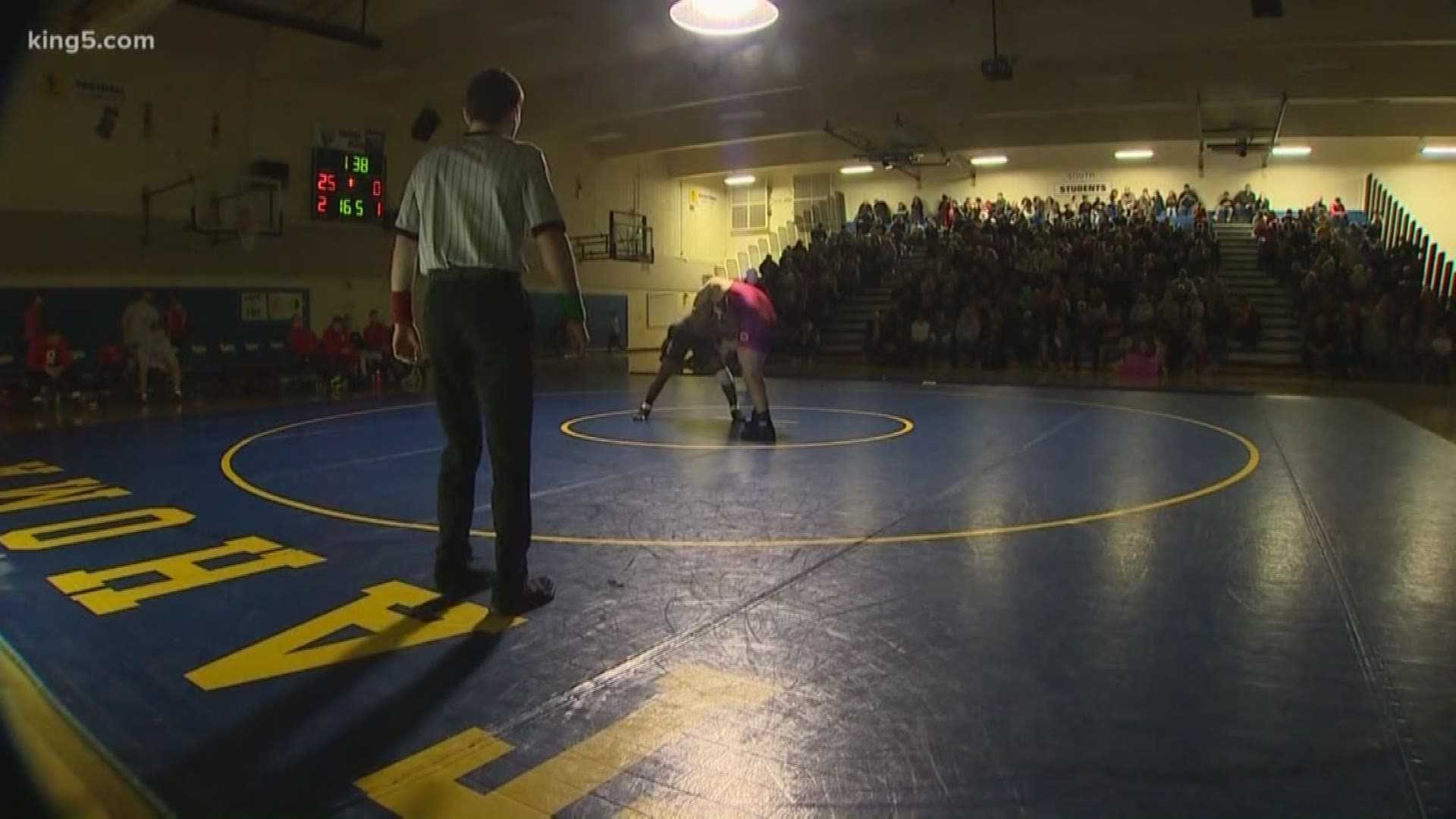The Oregon State Beavers and Simon Fraser Clansmen held a wrestling dual in Covington Friday night in the gym of the old Tahoma High School.
It was a rare chance to see Division 1 college wrestling because, well, Washington state doesn’t have it.
Both the University of Washington and Washington State University dropped their wrestling programs in 1980 and 1986 respectively.
J.J. Dixon attended Lincoln High School in Tacoma and won two state championships. Because there’s no four-year option for college wrestling, he went to Oregon State instead where he’s a redshirt freshman.
“I’m representing the whole state that doesn’t have a wrestling program,” he said.
Brandon Kaylor, known as B.K., is from Puyallup. He said Friday’s event was important to remind people wrestling is still very big in Washington state.
“We have Washington kids who are a big deal, who are really insanely talented,” B.K. said.
The numbers back up what he’s saying:
According to the national federation of state high school associations, wrestling participation for the 2018-19 school year in Washington state was up 3% for men, and 52% for women. The lack of options for college wrestling makes those numbers more baffling to Kiley Hubby, who wrestles at Lake Stevens High School.
“Washington is one of the best wrestling states, and it’s just kind of crazy to not have any colleges besides one or whatever that has wrestling.”
Tahoma High School's Associate Principal Chris Feist also happens to be the school's wrestling coach. He stressed the importance Friday's event can have on bringing college wrestling back to Washington state. He also said they need to enhance women’s wrestling which is also highly successful in this state.
“So, if we work hand in hand with women’s wrestling and help promote that side of our sport, then I think more opportunities for men’s wrestling as well," Feist said.
Highline College is the only post-high school option wrestlers have right now in the state to continue their athletic career. Otherwise, they need to leave the state to attend a four-year university elsewhere that offers it.

